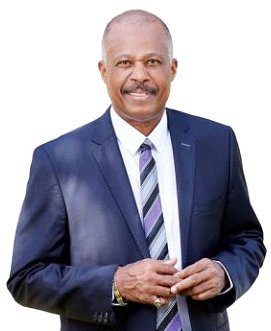Message from the Vice-Chancellor

There are many questions we can ask ourselves.
Firstly, how can the Caribbean protect itself from the existential threat of climate change?
It can achieve this by building resilience. It can achieve this by implementing initiatives that support climate solutions. But, ultimately, it can only truly achieve this through global partnerships that acknowledge larger countries’ huge role in heightened emissions, and create suitable solutions for global warming caps.
The Industrial Revolution, colonialism, slavery and inequitable trade practices have led to the Caribbean being in a disadvantaged position. Research has shown that the majority of developing states contribute little to the overall causes of climate change. However, they bear the full brunt of the consequences.
Can the Caribbean afford an even wider poverty gap due to socioeconomic effects wrought by unpredictable natural disasters, coastal flooding, and other climate impacts?
Can it afford exacerbated development gaps by being constantly reset to a start position? It cannot.
Added to this cocktail of disaster is Covid-19’s impact on economies, business, and development. All indicators show that we must take action now.
As a driver of the United Nations’ sustainable development goals in the region, The University of the West Indies (UWI) is committed to producing data and development solutions. The UWI’s researchers have long advocated for climate solutions, and actively contribute to policy-impacting research.
According to the UN's “Intergovernmental Panel on Climate Change (IPCC) 1.5
Report”, global temperatures will reach 1.5°C above pre-industrial levels by 2030. Six of The UWI’s researchers were part of the team who produced this report, and its findings have validated their recommendations and calls for clear targets.
As an activist university, The UWI has been leading the discourse within the region and globally, calling upon leaders, policy makers, technocrats, the private sector and civil society to act swiftly on the “1.5 to Stay Alive” agenda and resilience strategies.
As a global citizen, we are working with development agencies, donors, universities, and governments.
There is a clear need to protect lives and livelihoods, and the costs of fighting climate change are much lower than the costs of recovering from it.
As clichéd as it may sound, the truth is that we can only achieve this by working together. Are you ready to partner on climate solutions? We welcome partnerships, regionally and globally, that are committed to systematic change.
Professor Sir Hilary Beckles
Vice-Chancellor of The University of the West Indies




